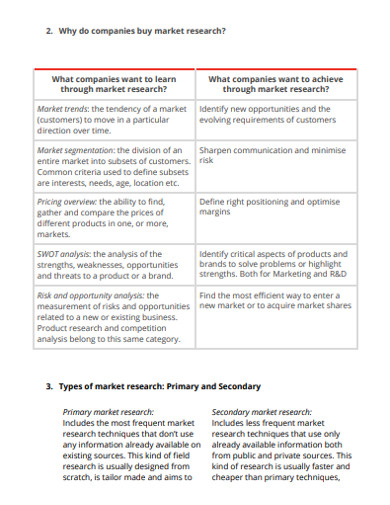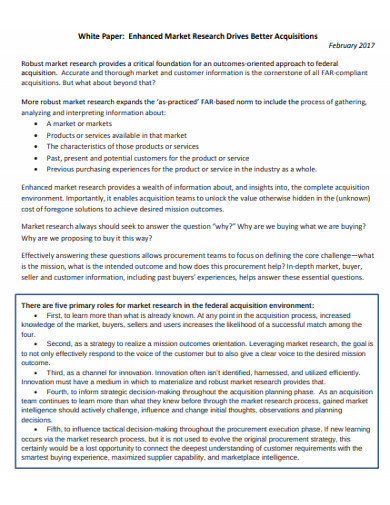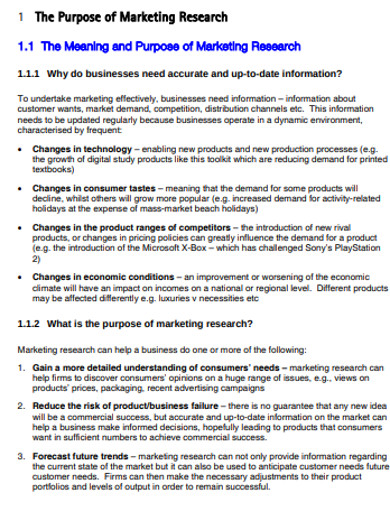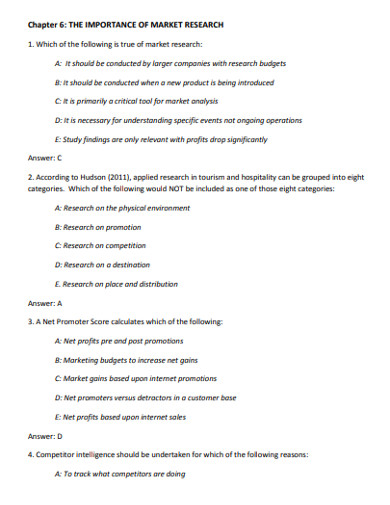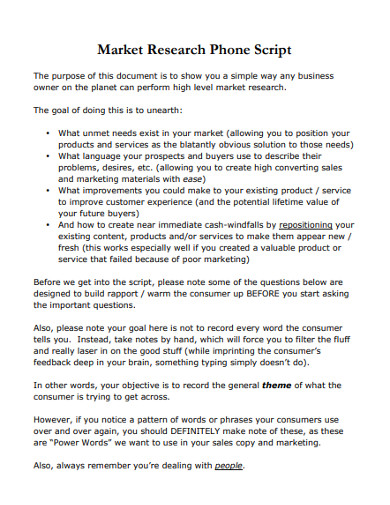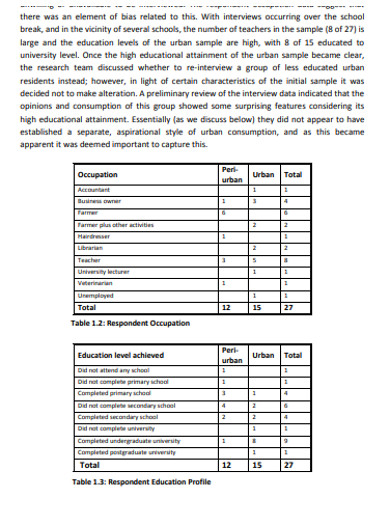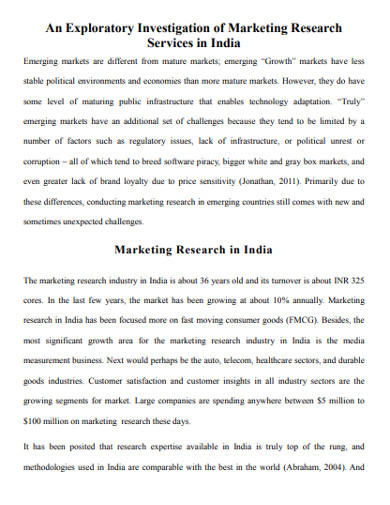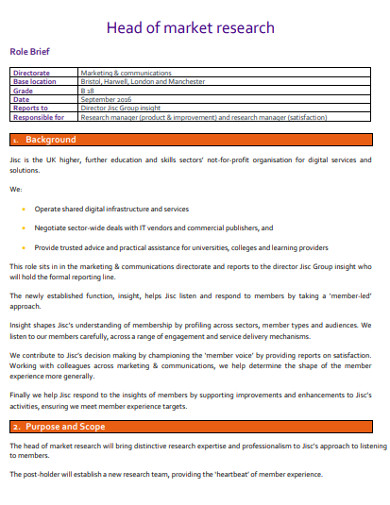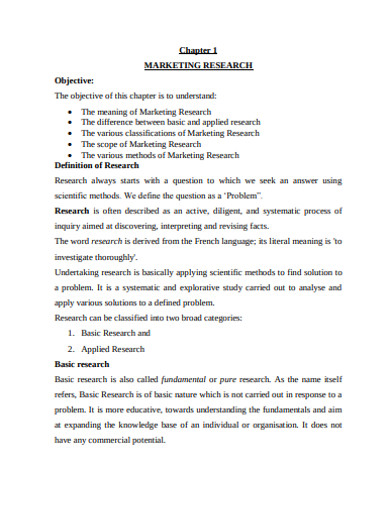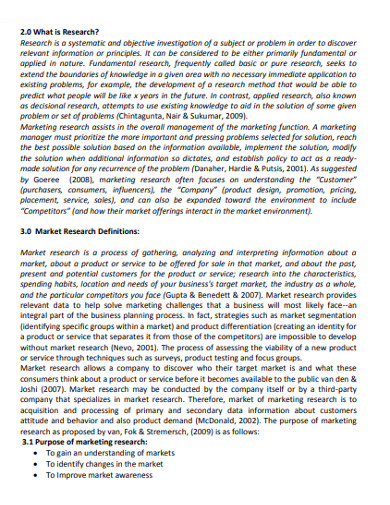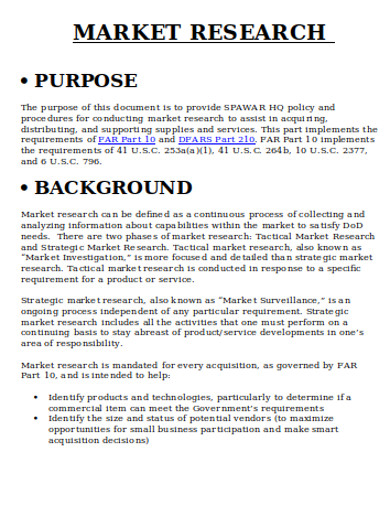Market Research
Preparedness meets opportunity. Such a line is simple yet true; so many doors open for those who take the time to be appropriately ready. So what does this have to do with marketing, you wonder? Well, for starters, no marketing campaign would succeed without the underlying research giving it its steam. Considering how important and interesting the topic of market research is, perhaps you should scroll down and read more about it. What’s even better is that we guarantee you exposure towards the best samples and templates from our list in the process.
1. Market Research White Paper Template

2. Market Research Proposal Template

3. Market Research and Competitive Analysis Template

4. Market Research Report Template

5. Market Research Analysis Template

6. Restaurant Market Research Survey Template
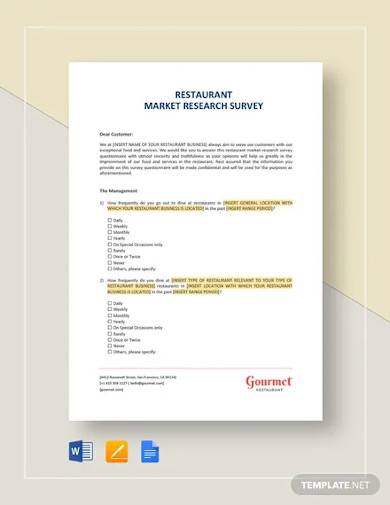
7. Cost Analysis of Restaurant Market Research Method Template
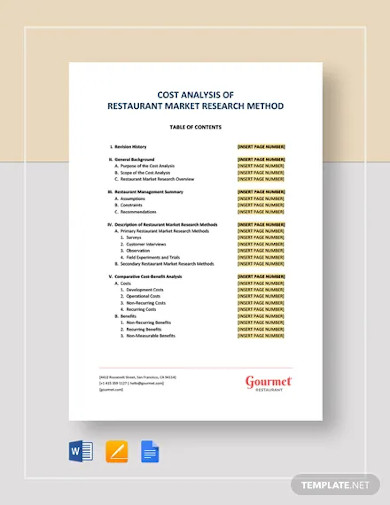
8. Market Research Flowchart Template
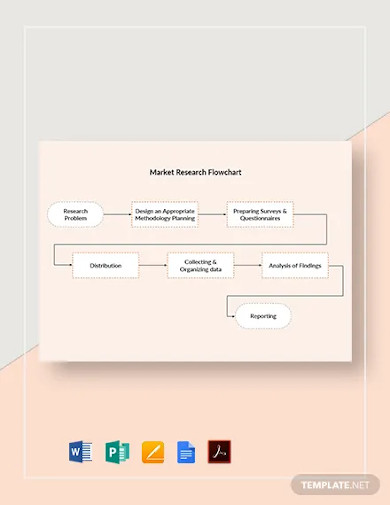
9. Companies Market Research Example
10. Market Service Research Example
11. Purpose of Marketing Research Example
12. Formal Market Research Example
13. Market Research Phone Script Example
14. Market Research Report Example
15. Exploratory Investigation of Marketing Research
16. Head Of Market Research Example
17. Marketing Research Template
18. Market Research in Implementing Example
20. Market Research Policy in DOC
What Is Market Research?
Going by a simple market research definition, this is the organized effort of gathering data regarding one’s customers and target markets. This is so significant for businesses that entire market research firms and market research companies dedicate their time and resources towards this endeavor. Many professionals seek market research jobs, such as that of a market research analyst, so they can do their part and contribute to an organization’s overall business strategy.
How to do Market Research
Moving on from the definition, let us tackle what it means to actually pursue the act of market research. Below are a few steps that should come in handy for all of your future efforts:
Step 1: Flesh Out Your Buyer Persona
When doing market research, your first step needs to be the development of a buyer persona. These are the fictional representations of who your ideal customers are. Having these can help you create marketing strategies from the ground up and they certainly help with your research efforts. For example, these can be used to help you formulate surveys.
Step 2: Begin Engaging Your Participants
The next part is all about your participants, which may include customers who have made recent purchases from you, volunteers, and even those within your own professional network. It is preferable that your participants fall into categories within your created buyer persona. You can start asking them research questions, which can come in the form of online surveys, focus groups, or even phone interviews.
Step 3: Take Your Competitors into Account
Apart from your market, there is another important factor to take into consideration and that’s the competition. Be sure to include questions regarding your competitors—both direct and indirect—into your focus groups or surveys. That way, you can get vital information on them straight from your own market research participants.
Step 4: Summarize or Conclude
After you’ve talked to your participants and retrieved the data that you need, the time has come for you to analyze it. Compare it to what you initially expected and then try to summarize it in the form of a business report. Through this conclusion, you can begin to formulate suggestions for the business. From there, all it takes is its general application.
FAQs
What are the types of market research?
The types of market research can be broken down into three primary types. First, there is exploratory research. Then you’ve got descriptive research. Lastly, there is causal research.
What are the seven common steps involved in market research?
The first step usually involves identifying or defining the problem. Then you’ve got to define your research objectives, followed by the planning of the research design. After that, you must plan the sample, and then the data collection. From there you can proceed to data processes before finally preparing the conclusion and presentation.
What are the most common examples of online market research tools?
The first marketing research tool that comes to mind is the Google Keywords tool. Other examples like Klout, Questback, and KeySurvey are also fine alternatives.
All it really takes is adequate and appropriate preparation to make the most out of the wonderful opportunities that pass you by. Remember that with enough market research, a company’s odds of succeeding increases exponentially. For that reason alone, this cannot be understated or overlooked. Take what you’ve learned here and apply it to your organization’s marketing efforts the next time around. Who knows, maybe you are just a few steps away from your next big break.



